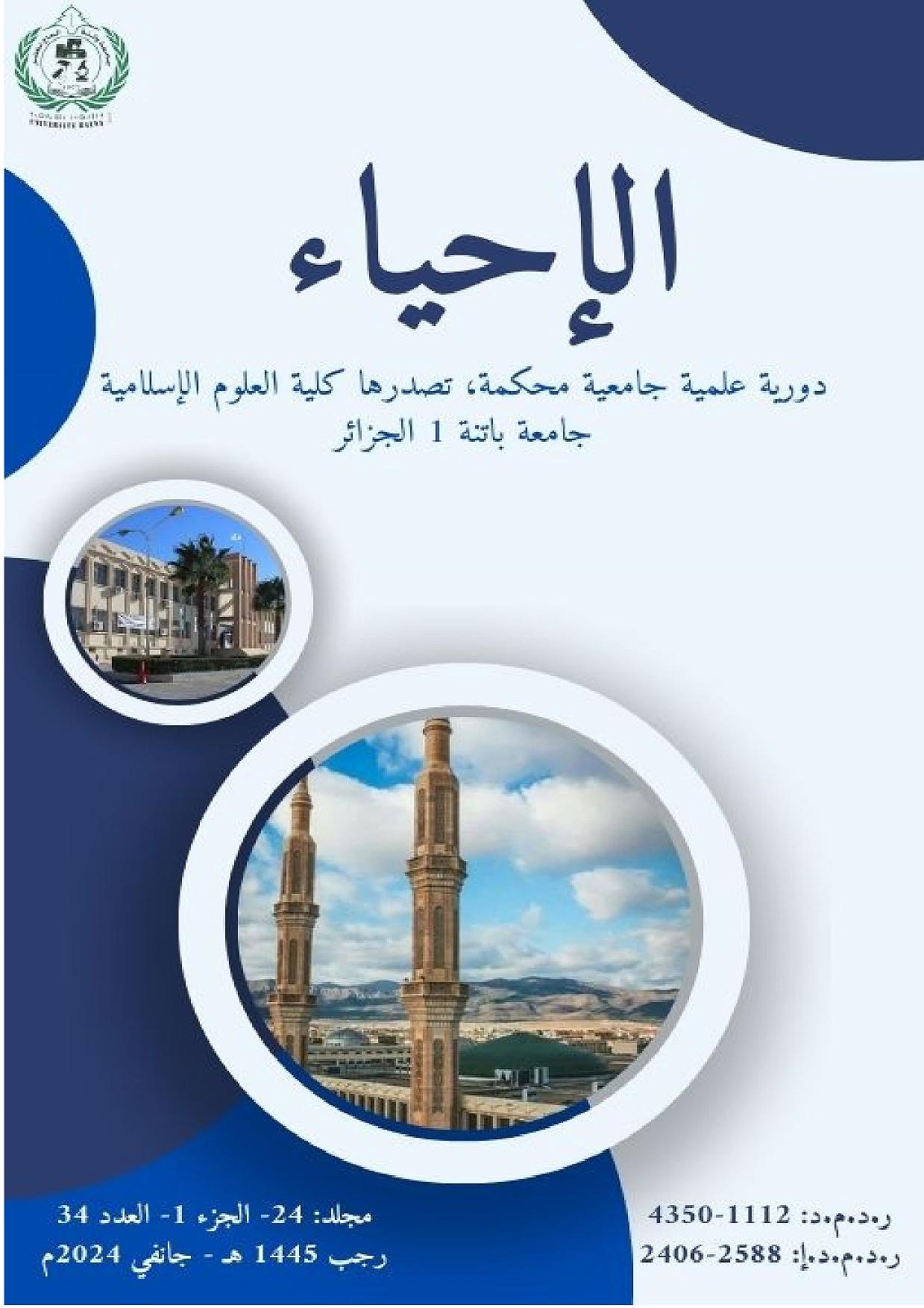The Evolution in the Thought of Sheikh Mohammed Al-Ghazali
DOI:
https://doi.org/10.59791/ihy.v24i1.3830Keywords:
Muhammad Al-Ghazali, Change, reasons and starting points, faith and morals, fixAbstract
The Muslim today lives in a state of stagnation and stagnation that classified him in the third world countries, and when researching the causes of this backwardness, we find that the Muslim's acquiescence, resignation and acceptance of good and bad is one of the most prominent reasons that made him an example of defeat and decline, and what he knew that the beginning of his awakening is to study himself and change it for the better, and the relentless pursuit of reforming it, which was the focus of attention of the virtuous Islamic thinker and preacher Muhammad Al-Ghazali in many of his books, because he worked with the question of civilization and progress and studied The reasons for backwardness and decadence, one of the priorities of his proposal was the principle of change, which is the incentive and the first point in the launch, because the cosmic norms prescribed by God, that there is no change for people until they change themselves, and change is defined as continuous positive attempts that change the individual or group for the better in all magazines and at all levels that require it, and Sheikh Al-Ghazali demanded change and sought it with all efforts, methods and means available within the circle of divine revelation. Starting with a number of many questions about the current situation of the nation and its future, the reasons for the reactionary situation it is living in, and the question of the desired civilization that it hopes, always warning that the main reason for its situation is its abandonment of its religion and its replacement with the ideas and beliefs of others, which do not meet with him either in goals or curricula
Downloads
Published
How to Cite
Issue
Section
License

This work is licensed under a Creative Commons Attribution-NonCommercial-NoDerivatives 4.0 International License.






